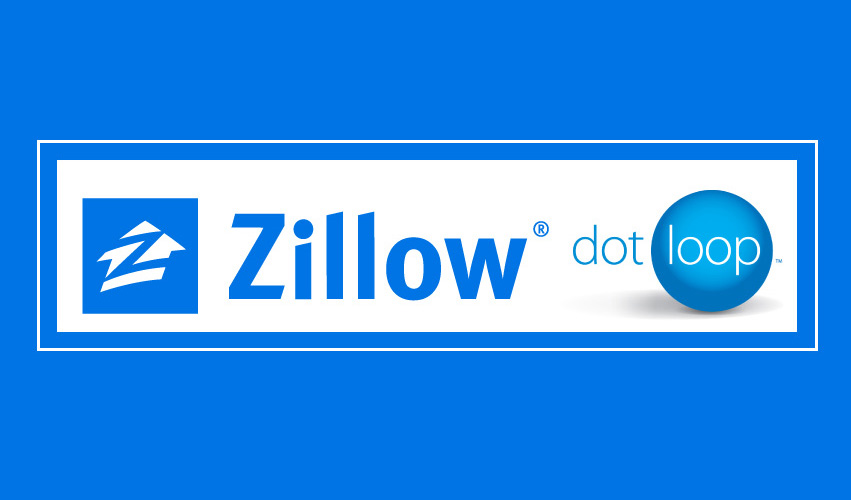I don’t trust Zillow. It’s that simple. I have frequently communicated my lack of trust to Zillow’s C-suite. 
As someone who runs a real estate brokerage, I have always been wary of Zillow’s ambitions. There were, and are, just too many contradictions to stomach.
Consider the following:
- From the beginning, Zillow has positioned itself as the consumers’ friend but has cynically titillated millions with inaccurate “Zestimates.”
- The company aggressively markets itself as the best place to find a home even as its listing coverage and quality leave much to be desired.
- Zillow’s business model depends on advertising and selling services to real estate professionals, yet it touts consumers’ ability to post self-listed homes on the site.
For me, many of the real estate professionals at Pacific Union, and brokerage leaders across the country, this has hardly engendered admiration. But Zillow’s recent acquisition of dotloop, a real estate transaction-management software company, represents something much more serious: a total failure of trust.
At risk here is the industry’s most sensitive personal and financial information and our legal and ethical duty as real estate advisors.
It’s time our industry takes a stand, pushes back, and demands the same trust and integrity from Zillow that our clients expect and receive from trusted real estate professionals.
In my mind this comes down to three issues:
The Gap Between Words and Actions
First, this acquisition is the greatest disconnect between Zillow’s words and actions to date. For the past year, Zillow CEO Spencer Rascoff has proclaimed to anyone who will listen that Zillow sells ads, not houses. I suppose this was meant to make those of us in the real estate business feel better, but many of us were asking ourselves the question “Does he think we’re stupid?” even before the dotloop deal.
Now Zillow has done something quite odd for a self-proclaimed “media company.” It has potentially extended itself deep into the mechanics of the real estate transaction. Rascoff’s spin on this is that Zillow acquired dotloop to make the leads it sends agents more valuable.
Zillow said that it simply sells ads. What Zillow just did is something quite different.
As the saying goes, “Fool me once … ”
Privacy and Common Sense
With the dotloop acquisition, Zillow will offer real estate transaction-management software while continuing to sell advertising. Selling advertising is about matching advertisers with audiences. These days, that is done through sophisticated data mining, tracking, and targeting technologies that concern many privacy advocates.
Now, I am not paranoid. I am not a conspiracy theorist. And I have no reason to believe that the Zillow team has plans to egregiously violate the common-sense privacy policies consumers expect and real estate professionals would demand of a service provider.
But it seems obviously reckless that sensitive data needed for a life-changing financial transaction will be housed in a system owned by a company that sells a ton of advertising.
Would you upload your bank statements or Social Security number to a Facebook group? Would you store your medical records in your Yahoo! account?
Real estate transactions are built on trust between professionals and their clients. At Pacific Union, we will not jeopardize that trust by treating our clients’ information cavalierly.
Below I identify some huge gaps in dotloop’s privacy policy that may alarm you – indeed, now that Zillow owns the company, they may terrify you.
The Fine Print
Let’s do what dotloop and Zillow hopes you won’t and take a moment to consider some of the fine print – dotloop’s privacy policy. Warning: This is not a trust-building exercise.
First comes the reality directed at real estate professionals:
“You agree and consent that we may collect, use, and disclose your personal information in accordance with this Policy. To make this Policy easy to find, we make it available on our homepage.“
Then, an ambiguous definition of the sort of information that may be collected and shared:
“The type of personal information collected on the website includes, but is not limited to: Name, Address, Email Address, Phone Number, and your involvement in a real estate transaction.“
Followed by the reality that they’re not just talking about your information – your clients are on the hook too:
” … the same types of information previously described in this paragraph will also apply to other people’s information.“
Then, the kicker:
“We may share your personal information with third parties who may offer services that may be of interest (“Third Party Sharing”).“
Of course, users are informed that they can opt out of third-party sharing. But I don’t think many real estate professionals will feel comfortable bringing this up with their clients, do you?
The Bottom Line
Zillow is feeling extreme pressure from Wall Street – the word “desperate” comes to my mind. The company’s stock price has fallen from $160 on July 28 of last year to $81.50 at the close of trading last Friday. And while Rascoff recently said that Zillow’s management thinks about the company’s trajectory in “decades,” the heat is on to grow revenue – fast.
I therefore expect more moves like the dotloop acquisition. I expect more efforts to frantically spin the industry into believing that Zillow is a trusted partner. I predict more disconnects between words and actions.
I know I am not alone in holding these views. And on behalf of our company, our professionals, our clients, and our industry I will not remain idle. I will continue to ask hard questions, and I won’t accept deflective answers.
I don’t trust Zillow.
– Mark A. McLaughlin, CEO, Pacific Union

